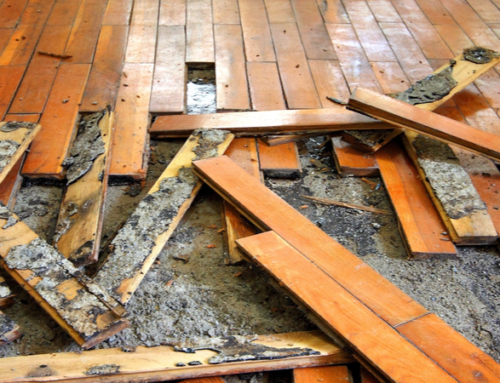Q: We recently purchased a home that has severe hail damage although we were unaware of it at the time of the closing. We had the home inspection prior to the closing and everything was fine. Four days after the inspection, a hail storm hit Columbus, Ohio, and at the end of that month we closed on the house.
Shortly after we moved in, signs started appearing on people’s lawns for roof and siding repairs due to hail damage. We decided to have a hail inspection and were shocked to learn that our house had over $12,000 dollars in hail damage. We cannot submit a claim to our insurance company because we did not own the house when the storm hit. We contacted the previous owners and asked them to submit a claim. We even offered to pay the deductible, but they refused saying they did not want their insurance rates to go up.
Is there anything we can do? We paid for a house in a certain condition and it did not come in that condition. Are the previous owners responsible or are we? Could the previous owners insurance rates go up or could they be dropped from their insurance company?
A: Your situation is quite unique. In various parts of the Midwest last year, large storms caused severe hail damage to many communities. Most buyers knew that these storms had hit and proceeded to purchase homes only after doing the final inspection of the home.
Did you know that the storm had hit? If you did know of the storm, did you take care to inspect the home for the damage before closing?
The reason your situation is quite unique is that a hail storm causing damage to a roof is not as evident as a fire in the home or a tornado destroying the home. In many states, it is still buyer beware when it comes to buying the home and if the seller did not lie or hide damage to the home, the seller may be off the hook for damage caused to the home.
As for the hail inspection, you should contact at least two other companies to determine if your roof has hail damage. You should make sure that you do in fact have this damage and someone is not trying to take advantage of your situation.
If there is damage, review the contract for the purchase and sale of your home. The contract may provide for certain representations and warranties regarding the condition of the home. If these representations or warranties were breached, you may have the right to pursue an action against the seller.
Moreover, some states have passed seller disclosure laws. While these disclosure laws require the seller to tell you of thing that they know are wrong with the house, many do not require the seller to give you additional disclosures to you after the initial delivery of the disclosure. However, if the state you live in has a seller disclosure law that requires the seller to disclose to you this type of damage, and the seller failed to tell you, you may be able to sue the seller for the damage.
While the seller may not want to make a claim with his insurance company, if you have a right under the contract or a seller disclosure law to sue the seller for the damage, the seller might be inclined to make the claim with his insurance company and resolve your claim. You may not want to sue the seller, but you may have to sue him to get him to pay and force him to file his own claim with his insurance company.
Keep in mind that in some states violations of seller disclosure laws permit a court to grant the winning party attorneys fees in connection with the case.
For further information on your unique situation, please consult with a real estate attorney or an attorney that specializes in real estate litigation.
Sept. 16, 2004.




Leave A Comment